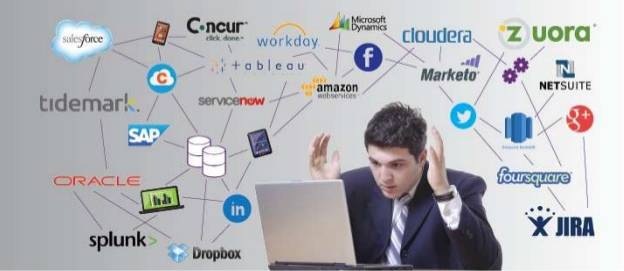Signs you need an Enterprise Application Integration Solution
 As the number of systems in organizations grow, keeping a consistent and integrated view of the entire organization is becoming increasingly challenging. The problem seems set to last as the number of vendors and product options grows and these become more and more specialized. If you aren’t sure if you need an integration solution, here are a few signs to help you decide:
As the number of systems in organizations grow, keeping a consistent and integrated view of the entire organization is becoming increasingly challenging. The problem seems set to last as the number of vendors and product options grows and these become more and more specialized. If you aren’t sure if you need an integration solution, here are a few signs to help you decide:
Silos of information
Information across departments/functions and systems exists in silos. These can include the likes of HRMs, ERPs, Unstructured Portals like Sharepoint, issue tracking systems, CRMs and an ever increasing array of cloud applications. While each system is complete, other systems rarely interact with information existing in other systems. For example, your HRM might be unaware of information on the candidates available on LinkedIn or your Invoice generation system might be unaware of the Warehouse Management system managing your shipments.
Commonly used business processes span across systems
Common business processes require you to login and copy information from multiple systems. This usually leads to lost time, entry errors and an inefficiency in the overall information and financial supply chain.
You need a centralized way to track information
Tracking data (invoices for example) needs to look at multiple systems across varying information e.g. Shipment numbers to POs to Invoices and you need a quick way to track and trace this information. Also related is the need to centrally manage the provisioning and management of applications.
You want to abstract your business processes from technology
With a wide and every increasing array of options available now a days most clients end up adopting more than one product and technology vendor to complete the enterprise’s needs. Many times vendor diversity is maintained to avoid a lock in by a vendor. In this situation many companies are looking to abstract a set of business oriented services using Service Oriented Architecture (SOA) and build technology stacks independently underneath them. EAI solutions usually support a wide range of related technologies including Application Adapters, Service directories (UDDI) and ESB (enterprise Service bus) architectures.
You have several business partners that you need to coordinate with closely and frequently
This problem is typical in the retail and wholesale industries. Information exchanged is usually of the from of Invoices, Purchase Orders, Inventory and shipment information. B2B Integration solutions typically use industry standard protocols (usually abbreviated as EDI) to enable standardized connections with clients and suppliers. Gateways have popped up around industries and standards that enable easier access to several clusters of companies at a time.



![Demo Summary [Azure Logic Apps: In-order Message Processing]](https://alliedc.com/wp-content/uploads/2019/05/4-150x150.png)


